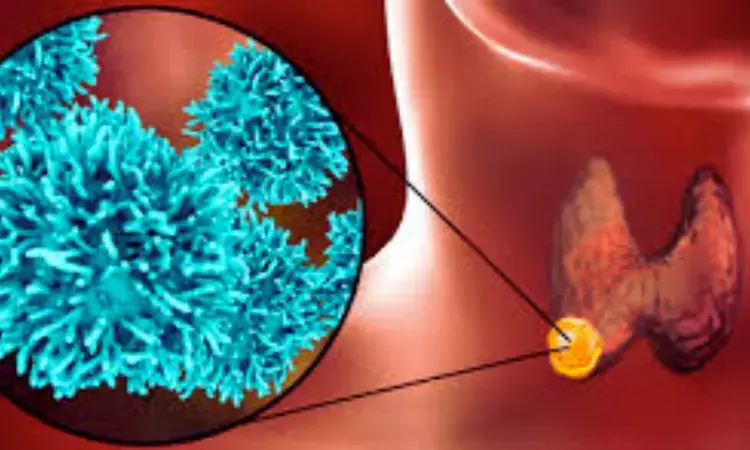- Home
- Medical news & Guidelines
- Anesthesiology
- Cardiology and CTVS
- Critical Care
- Dentistry
- Dermatology
- Diabetes and Endocrinology
- ENT
- Gastroenterology
- Medicine
- Nephrology
- Neurology
- Obstretics-Gynaecology
- Oncology
- Ophthalmology
- Orthopaedics
- Pediatrics-Neonatology
- Psychiatry
- Pulmonology
- Radiology
- Surgery
- Urology
- Laboratory Medicine
- Diet
- Nursing
- Paramedical
- Physiotherapy
- Health news
- Fact Check
- Bone Health Fact Check
- Brain Health Fact Check
- Cancer Related Fact Check
- Child Care Fact Check
- Dental and oral health fact check
- Diabetes and metabolic health fact check
- Diet and Nutrition Fact Check
- Eye and ENT Care Fact Check
- Fitness fact check
- Gut health fact check
- Heart health fact check
- Kidney health fact check
- Medical education fact check
- Men's health fact check
- Respiratory fact check
- Skin and hair care fact check
- Vaccine and Immunization fact check
- Women's health fact check
- AYUSH
- State News
- Andaman and Nicobar Islands
- Andhra Pradesh
- Arunachal Pradesh
- Assam
- Bihar
- Chandigarh
- Chattisgarh
- Dadra and Nagar Haveli
- Daman and Diu
- Delhi
- Goa
- Gujarat
- Haryana
- Himachal Pradesh
- Jammu & Kashmir
- Jharkhand
- Karnataka
- Kerala
- Ladakh
- Lakshadweep
- Madhya Pradesh
- Maharashtra
- Manipur
- Meghalaya
- Mizoram
- Nagaland
- Odisha
- Puducherry
- Punjab
- Rajasthan
- Sikkim
- Tamil Nadu
- Telangana
- Tripura
- Uttar Pradesh
- Uttrakhand
- West Bengal
- Medical Education
- Industry
Pembrolizumab Significantly Improves Event-Free Survival in Head and Neck Cancer: NEJM

According to a recent study adding perioperative pembrolizumab to standard therapy such as surgery and radiotherapy with or without cisplatin consistently improves event-free survival (EFS) in patients with locally advanced head and neck squamous-cell carcinoma (HNSCC), researchers have discovered. Significantly, this increase in EFS was seen in patients with various levels of programmed death ligand 1 (PD-L1) expression, with no adverse effect on surgical completion and with no new safety issues. The study was published in The New England Journal of Medicine by Ravindra U. and colleagues.
HNSCC is a highly recurrant cancer, and outcomes with surgery and adjuvant treatment continue to be suboptimal for most patients. Immunotherapy, such as checkpoint inhibition with agents like pembrolizumab, has been of value in recurrent and metastatic disease, but its place in locally advanced disease treated with curative intent has remained unclear. This large phase 3 trial gives vital proof that the addition of pembrolizumab in both the neoadjuvant and adjuvant environments can enhance long-term outcomes.
This open-label, phase 3 randomized trial included patients with locally advanced HNSCC. The participants were randomly assigned in a 1:1 ratio to receive:
• Pembrolizumab group: 2 cycles of neoadjuvant pembrolizumab and then 15 cycles of adjuvant pembrolizumab (200 mg every 3 weeks) plus standard treatment.
• Control group: Standard treatment alone (surgery and radiotherapy ± cisplatin).
The main endpoint was event-free survival (EFS), which was measured sequentially in patients with CPS ≥10, CPS ≥1, and the overall population.
Key Results
• 714 participants were randomized: 363 to pembrolizumab and 351 to control. Of these, 234 pembrolizumab vs. 231 control patients had CPS ≥10, and 347 pembrolizumab vs. 335 control patients had CPS ≥1.
• Surgical completion rate: ~88% in both groups.
• Median follow-up: 38.3 months.
• Event-free survival at 36 months:
• CPS ≥10 population: 59.8% (pembro) vs. 45.9% (control); HR 0.66; 95% CI 0.49–0.88; P=0.004.
•CPS ≥1 population: 58.2% vs. 44.9%; HR 0.70; 95% CI 0.55–0.89; P=0.003.
• Total population: 57.6% vs. 46.4%; HR 0.73; 95% CI 0.58–0.92; P=0.008.
• Grade ≥3 treatment-related adverse events: 44.6% (pembro) vs. 42.9% (control).
• Deaths due to treatment: 1.1% (pembro) vs. 0.3% (control).
• Immune-mediated grade ≥3 adverse events: 10.0% in the pembro group.
This extensive phase 3 trial reaffirms that perioperative pembrolizumab added to surgery and adjuvant therapy greatly enhances event-free survival in locally advanced HNSCC without sacrificing surgical procedure or adding new safety issues. The trial is a significant advancement in the management of head and neck cancer, with immunotherapy entering earlier stages of disease.
Reference:
Uppaluri, R., Haddad, R. I., Tao, Y., Le Tourneau, C., Lee, N. Y., Westra, W., Chernock, R., Tahara, M., Harrington, K. J., Klochikhin, A. L., Braña, I., Vasconcelos Alves, G., Hughes, B. G. M., Oliva, M., Pinto Figueiredo Lima, I., Ueda, T., Rutkowski, T., Schroeder, U., Mauz, P.-S., … KEYNOTE-689 Investigators. (2025). Neoadjuvant and adjuvant pembrolizumab in locally advanced head and neck cancer. The New England Journal of Medicine, 393(1), 37–50. https://doi.org/10.1056/NEJMoa2415434
Dr Riya Dave has completed dentistry from Gujarat University in 2022. She is a dentist and accomplished medical and scientific writer known for her commitment to bridging the gap between clinical expertise and accessible healthcare information. She has been actively involved in writing blogs related to health and wellness.
Dr Kamal Kant Kohli-MBBS, DTCD- a chest specialist with more than 30 years of practice and a flair for writing clinical articles, Dr Kamal Kant Kohli joined Medical Dialogues as a Chief Editor of Medical News. Besides writing articles, as an editor, he proofreads and verifies all the medical content published on Medical Dialogues including those coming from journals, studies,medical conferences,guidelines etc. Email: drkohli@medicaldialogues.in. Contact no. 011-43720751


